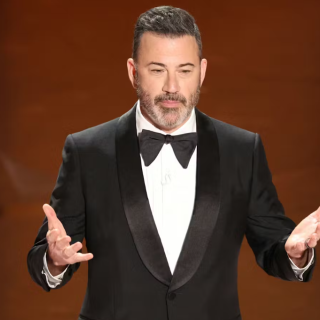A hundred years ago, the greatest political show trial in United States history took place. It began in Canton, Ohio when the legendary socialist Eugene Victor Debs denounced U.S. involvement in World War I.
On June 16, 1918, Debs allowed all the elements of his democratic socialist faith to flow forth. Debs’ speech made it clear that there could be no socialism without democracy: “Everywhere they are moving toward democracy and the dawn; marching toward the sunrise, their faces all aglow with the light of the coming day. They are the Socialists, the most zealous and enthusiastic crusaders the world has ever known.”
Debs’ political strategy for advancing democratic socialism was straightforward: “To turn your back on the corrupt Republican and the corrupt Democratic Party – the gold-dust lackeys of the ruling class – counts for something.” Debs told the crowd “Do not worry over the charge of treason to your masters, but be concerned about the treason that involves yourself. Be true to yourself and you cannot be a traitor to any good cause on earth.”
His speech was delivered at the Ohio Socialist Party state convention in Canton that day. The crux of Debs’ speech was that: “Rich people have always declared war and poor people have always fought and died.”
Four days after the speech, the U.S. government charged Debs with “uttering words that intended to cause insubordination and disloyalty within the military forces of the United States to incite resistance to war and to promote the cause of Germany.” Debs was now the most famous victim of the amended Espionage Act of 1917.
His trial was destined to become the most important of all free speech. anti-war cases in U.S. history. The trial began September 9, 1918 in Cleveland before Judge D.C. Westenhaver. Instead of remaining quiet prior to the trial, Debs was out on bail and attended a National Socialist Party convention in August. He delivered a fiery anti-war address that brought the convention to its feet. At his trial, Debs refused to call witnesses and insisted on waiving his Fifth Amendment rights and be put on the witness stand.
Once under oath, he chose to speak solely of his First Amendment rights. He attacked the Espionage and Sedition Acts as patently unconstitutional and un-American. The writer Max Eastman claimed Debs staged the United States’ “first Greek Drama.”
In his address to the jury, Debs invoked the spirit of the American Revolution; he linked the original American revolutionaries to the Socialists of his day. “Washington, Jefferson, Franklin, Paine and their compeers were the rebels of their day,” Debs lectured. He noted that the framers “…had the moral courage to be true to their convictions, to stand erect and defy all the forces of reaction and detraction; and that is why their names shine in history, and why the great respectable majority of their day sleep in forgotten graves.”
Debs argued that his Canton speech was legal and that the Sedition Act violated the First Amendment. He read the First Amendment to the jury and remarked “This is perfectly plain English. It can be understood by a child. I believe the revolutionary fathers meant just what is here stated….That is the right I exercised at Canton.” Debs proclaimed, “I believe in the right of free speech in war as well as peace. I would not under any circumstances suppress free speech.”
His final words to the jury before they found him guilty and sentenced him to ten years in prison were these: “I am not on trial here. There is an infinitely greater issue that is tried today in this court, though you may not be conscious of it. American institutions are on trial here before a court of American citizens. The future will render the final verdict.”
Debs was sentenced on Saturday, September 14, Judge Westenhaver asked Debs if he had anything further to say.
Debs spoke perhaps his most quoted words: “Your honor, years ago I recognized my kinship with all living beings, and I made up my mind that I was not one bit better than the meanest of earth. I said then, and I say now, that while there is a lower class, I am in it, while there is a criminal element I am of it, and while there is a soul in prison, I am not free.” Debs asked “for no mercy” and pleaded “for no immunity.” Debs ran for president from prison in 1920 and garnered a million votes.
So, on this 100th anniversary of the imprisonment of Eugene Victor Debs, to honor his memory, resistance to tyranny and corporate capitalism should arise everywhere.
Bob Fitrakis will speak at the:
Debs Centennial Celebration
October 5-6, 2018
Cleveland Public Library, Louis Stokes Wing Auditorium
525 Superior Avenue, Cleveland, Ohio 44114
The proceedings will include a tour of the Metzenbaum U.S. Courthouse where Debs was tried in the East Courtroom.




